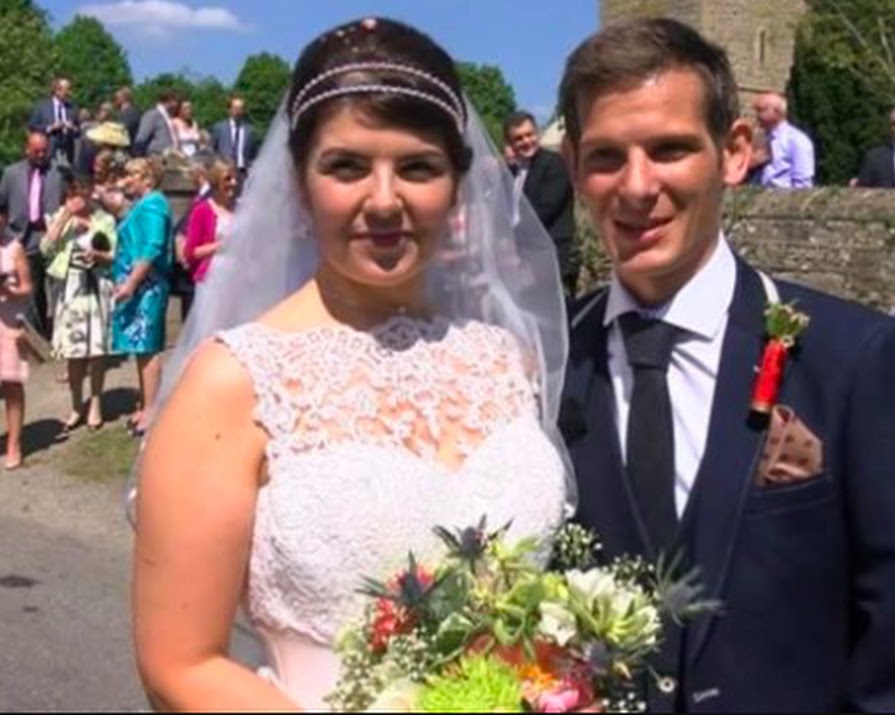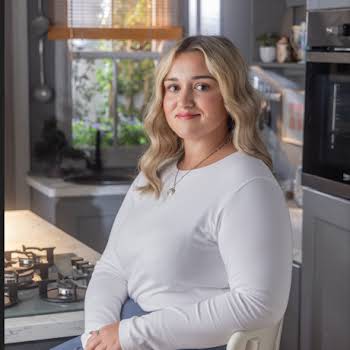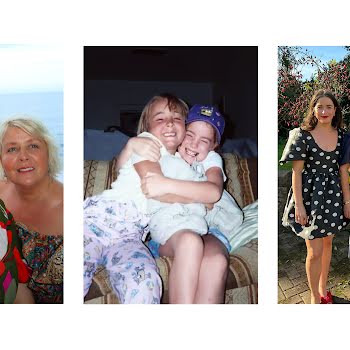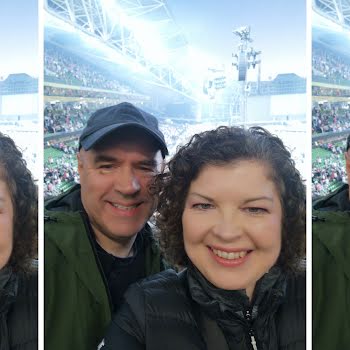
Multi-organ transplant recipient: ‘I’m extremely aware that someone died for me to be here’
By Amanda Cassidy
16th May 2021
16th May 2021
Adam Alderson is an adventurer. He’s travelled to Russia and back by car and sped across the Pyrenees on a mini motorbike for charity. But his biggest journey to date involved having every abdominal organ removed and replaced. This is his remarkable story.
“I’m a timber harvester from the Yorkshire Dales,” 37-year-old Adam tells me in his gentle Northern lilt. “I live there with my wife Laura and our two cocker spaniels.”
It sounds idyllic, but for the last few years, the couple has battled a horrific disease — a rare form of cancer called Pseudomyxoma Peritonei that began to slowly crush Adam’s stomach, intestines, and bowel. He is among a handful of people who have survived the ground-breaking multi-organ transplant he received just four years ago.
Dire prognosis
“I’d suffered from IBS for 12 years. My girlfriend at the time Laura and I moved to Australia and started a new life. About two years into the trip, my symptoms were worsening. I was losing weight, had a distended stomach and a lot of pain.
They told me I had about two years to live and to make the most of it.
Doctors there scanned me and picked up on some abnormalities. They broke the news to me that it was a rare form of cancer and I was referred to the Christie Hospital in Manchester.
The disease I have behaves differently to most other cancer — it doesn’t go into your blood or lymph nodes. In some ways, that’s a good thing — but in others, the way it presents is really hard to remove.
It grows like frogspawn, getting into every cavity, crushing my organs. Most people with this disease die from organ failure. When the doctors in Manchester opened me up they saw that my bowels were totally crushed.
“They put in a stoma and a feeding tube and told me I had about two years to live and to make the most of it.”
But Adam being Adam refused to accept his prognosis. “We are not to the type to sit around getting upset. We’ve never been that way. We were up for the challenge and thought there has to be another day. I’d lost my dad to bowel cancer years before so I took this very personally, I decided I wouldn’t let it beat me.”
Adam endured months of chemotherapy to see if the cancer could be reduced to try and operate again. “I was really sick, I was fed through a machine I was constantly hooked up to and I was in a lot of pain. I lost three and a half stone.”
But despite this, Adam was determined to keep pushing. He spent a lot of time outside in his beloved Dales, he walked the dogs, cut the logs, even if it made him sicker afterward. “I am a big believer that the mental and physical side work together. I’d always been very physical, hardy and outdoorsy, I wanted to stay that way.”
But eventually, Adam got so sick that he was brought by ambulance to hospital with bowel obstructions. “That’s when I started looking at other avenues; second opinions, googling specialists in the disease, putting it out there on support groups, asking if they knew any surgeons, I sent my scans around the world.”
Stubborn
I ask Adam if his own doctors supported this method? “They actively discouraged it. They told me that if I went shopping for surgery, someone would eventually operate and potentially kill me.
“But I’m a stubborn little sh*t. I don’t like being told what to do, and it made me want it more”. After a lot of false starts and soul-searching, the couple started corresponding with Colorectal Surgeon, Brendan Moran from Dublin, who is based in Basingstoke.
He said ‘We are nearing the end, Adam. We need to make decisions. Do you want to die at home or in the hospice?’
He agreed to have a look but around that time, I ended up in my local hospice in a really bad way. I was brought from the hospice back to hospital with complete intestinal failure. Time was running out.
“The consultant there told us that things were bad. I’ll never forget his words. He said ‘we are nearing the end, Adam. We need to make decisions. Do you want to die at home or in the hospice?’ He brought me the ‘do not resuscitate’ form and asked if I’d sign it. I refused to sign it. I refused to give up.”
Hero
A few days later, the call from Basingstoke came. They had a bed and they wanted to see him. “It was the first positive sign in a long time,” recalls Adam. “I remember squeezing Laura’s hand next to me and feeling that moment of elation.”
Adam admits he’d done so much research on Brendan Moran that he was a little starstruck when he met him. “In my head, this was the man that was going to save my life. He was the most incredible man in the world. My biggest hero.”
Moran had worked a lot of cases for this particular cancer. He worked in the US with Paul Sugarbaker a pioneer of the process to remove this disease.
Adam explains that after all the scans, Moran told him “There is a lot going on with you. It has spread everywhere like concrete. There isn’t a lot we can do.”
I held onto those words like a safety net.
Adam says that he begged him, saying can’t you try something, anything?
“He asked us about our lives, my background, our business. There was a silence and he said slowly; “There is one thing we might be able to try”.
“One thing. I held onto those words like a safety net.”
The plan was to remove all the abdominal organs —at least eight of them. Remove the tumor and transplant all new organs. The operation had been done before successfully on former England player Steve Prescott but sadly he died from rejection three weeks later.
Multi-organ transplant isn’t uncommon. That’s not the part that is special. The bit that is special is that it’s only been done a handful of times for this disease.
Moran told Adam “You are young and fit, you don’t have a lot of scar tissue and most importantly, I’ve never met anyone as stubborn in my life. ”
Bittersweet
There is this moment of joy, that these organs might save your life. But when you strip it away, someone died for this to happen.
The Oxford transplant center carried out all the necessary tests and Adam went home to wait for a matching donor. “I was at home lying on the couch in so much pain that if I had a gun I would have shot myself. I was really poorly. The doctor came and told my wife. ‘Adam’s body is shutting down now. Over the next few days, he will go into a deep sleep and won’t wake up.’
At 2 am that morning, we got the call. They’d found a match.
“At that point, your world falls apart. There is this moment of joy, that these organs might save your life. But when you strip it away, someone died for this to happen. It was a very confusing time. I’ve since written to the family of the young woman who died in an accident. I didn’t want or need to hear anything back.”
Adam’s stomach, small bowel, large bowel, spleen, gall bladder, appendix, pancreas, abdominal wall and most of his liver were removed and replaced. He survived the 17-hour ground-breaking surgery which required 30 people working shifts to remove the cancer.
Custodian
“I was in a coma for four days. The most I’d hoped for was more time. When I came around Laura told me the operation was a success. Everything was working and they’d managed to get all the disease. That was the cherry on the cake. I didn’t expect it at all.”
Four years on and Adam now does a lot of work and events for charity and public speaking at medical events. He says he continues to seek out adventure at every opportunity.
“I’m now custodian of these organs. It is a big responsibility. I feel very fortunate to be here, to be alive. I’m very grateful to the donor and her family. I take nothing for granted. I try to acknowledge that by living the best life that I can.”





















